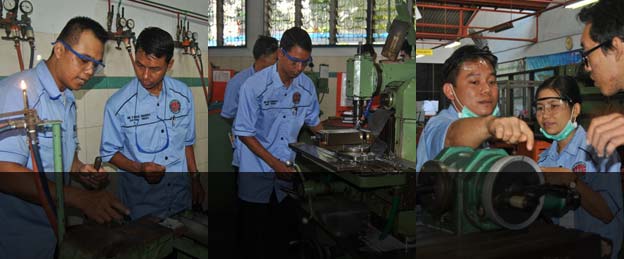Full issue 5
Vocational teacher education is a relevant field of continuous development in Asia and in other world regions. Concepts, initiatives and declarations on the professional development of TVET personnel have frequently been issued by relevant stakeholders at a number of significant international meetings. Among them are the following:
Ten years ago the UNESCO International Meeting on Innovation and Excellence in TVET Teacher/Trainer Education was held in Hangzhou, China. This meeting recommended developing TVET into an internationally acknowledged scientific community in order to professionalize TVET teacher/trainer education and to integrate TVET as sustainable, reproductive and innovative scientific systems in national approaches to innovation. To implement TVET Teacher Education study programs at the Masters level were considered one of the necessary steps.
The First World Congress on Teacher Education for Technical and Vocational Education and Training held in 2008 in Bandung, Indonesia reaffirmed this request by recommending that TVET teacher/trainer education should encompass “studies in the analysis, design and evaluation of (a) vocational learning, educational and qualification processes, (b) occupational work and business processes, (c) technology as an object of work and learning processes, and (d) critical pedagogy for social change”. The Bandung declaration in addition asked for the establishment of “frameworks for promoting the continuing professional development of TVET practitioners”, a request implicitly included in the Hangzhou declaration.



